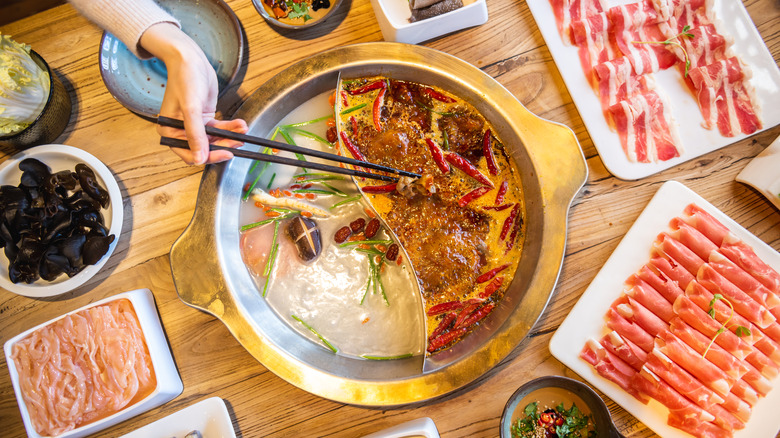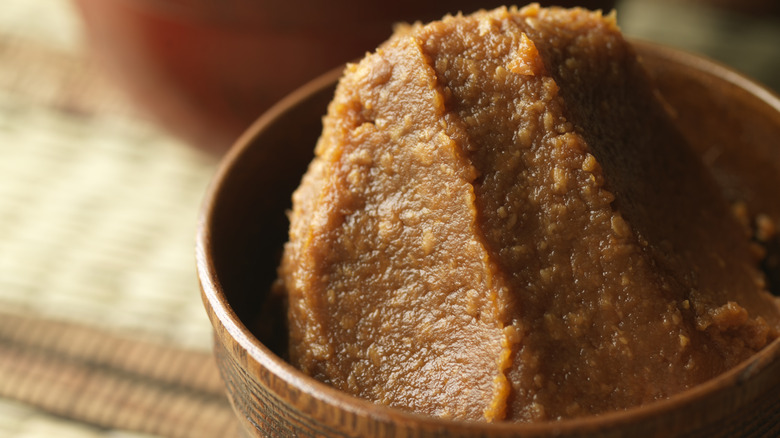The One Seasoning You Should Never Add To Hot Pot Broth
We may receive a commission on purchases made from links.
As popular as the communal culinary experience of fondue was in the 1970s, today we have the zeitgeist of Korean barbecue and Chinese hot pot. Hot pot involves a deliciously seasoned broth with various accouterments — from meat to vegetables — served raw and ready to be plunged into the simmering soup. The meal is healthy, it provides a chance to socialize with friends and family, and it's tasty and fun. Other Asian countries such as Korea, Vietnam, and Japan also have their own styles of hot pot. But did you know that for a novel dinner party, you can make hot pot at home? You'll want to put some effort into the broth, but no matter what you do, don't add any salt.
We spoke with Executive Chef Kenny Leung at YAO in New York, about why adding salt to hot pot broth may be an irreparable mistake. "Adding salt takes away the natural taste when boiling, so use miso instead," he said. Typically, hot pot restaurants will offer clear and spicy broth as a base for the meal. The soups are accompanied by an array of dipping sauces that are meant to enhance the meat and vegetables after you plunge them into the broth. "At YAO, we don't add salt to the broth when making hot pot. Instead, we dip the ingredients into a sauce," Leung also noted.
How to flavor hot pot broth without salt
Crafting a broth that's up to your standards could mean working with a vegetable base, a chicken or beef base, or a dashi or miso base. In our article on how to craft a dynamic broth duo for an at-home hot pot, Kat Lieu suggests using any of these broths as a base for a spicy and clear broth. The addition of garlic, ginger, and scallions will enhance the depth of flavor, and for a spicier broth, you can add fresh or dried chiles, Sichuan peppercorns, or gochujang (Korean hot pepper sauce). Because all these ingredients add their own element of either pungent, savory, sour, or salty, you don't want to add any extra salt.
You may be tempted to up the sodium during the cooking process, but don't. A simple addition of miso, mirin, or sake can elevate the umami in your broth without the need for extra sodium. Other aromatics like onion, garlic, and carrots add dimension to a broth, and dried shiitake mushrooms (the base for a good dashi broth) will bring an earthy depth of flavor without the need for added salt. Of all the ingredients, you can tailor the salty essence of your broth with extra miso paste. Just add it sparingly and taste, as misos have different levels of salt. As Chef Kenny Leung suggested, dipping sauces served alongside the meal, including soy sauce, chili sauce, and oyster sauce — whatever your preference may be — are essential to the hot pot experience.

